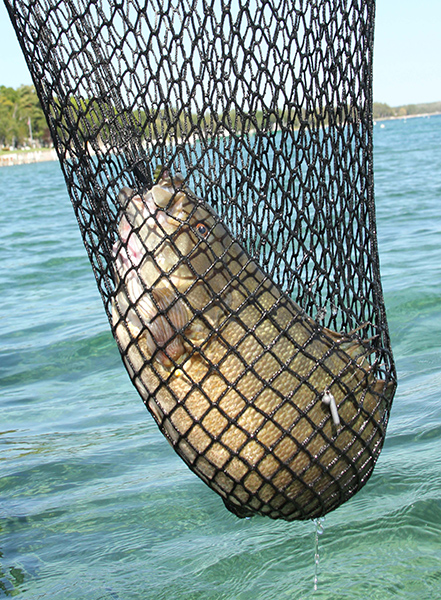By Louie Stout
 Mangus Asks Tournament Groups to Alter Smallmouth Rules During the Spawn
Mangus Asks Tournament Groups to Alter Smallmouth Rules During the Spawn
Greg Mangus is encouraging Michiana tournament directors to consider prohibiting smallmouth from being weighed in during the spawning season.
The temporary restriction would help protect the noticeably declining smallmouth populations on lakes where largemouth bass dominate and still provide largemouth opportunities for competing anglers.
Mangus, a South Bend native from Fremont, Ind., said at least two northeast Indiana tournament circuits have adopted the idea of excluding smallmouth during the month of May this year.
He says the idea arose in discussions this winter with other veteran tournament anglers who have seen dwindling smallmouth populations on lakes that get springtime tournament pressure.
“There may be other reasons, but I think tournament anglers – including me - are part of the blame,” he says. “It’s time we acknowledge the problem and start policing ourselves to try to bring those populations back.”
He points to Clear Lake in Steuben County where 13 tournaments were held in one week during the smallmouth spawn. Other lakes experience similar pressure throughout the month of May.
Wawasee and Lake James in Indiana and Diamond, Eagle, Magician and Gun Lake in Michigan have seen numbers of quality smallmouth decline.
“Smallmouth populations are more fragile than largemouth in our area lakes,” he explained. “I think if we keep spawning smallies out of our livewells and weigh-in bags, we will see better smallmouth fishing in the years to come.”
Studies support Mangus’ theory. While most research concludes fishing pressure on spawning largemouth has little impact, smallmouth aren’t as resilient spawners. They are more apt to forego the spawning cycle when removed from the nest for extended periods. In fact, a Wisconsin study shows that – even without fishing pressure - up to 40 percent of the mature smallmouth may not spawn in a given year.
Mangus recommendation most likely impacts Indiana waters where tournaments are allowed year-round. Michigan’s season doesn’t open until late May, yet smallmouth often are bedding when opening day tournaments are held.
He believes tournaments can be especially impactful on smallmouth in smaller lakes where the population is limited yet finding bedding fish is easier.
“Years ago, not many anglers were as proficient at catching bass off beds but now everyone is doing it,” said Mangus. “Couple that with the number of tournaments held on these lakes during the smallmouth spawning season and you can see the pressure that has put on such fragile fisheries.”
A recent In-Fisherman story about smallmouth populations noted that smallmouth lakes in regions with a closed season during the spawn produce the biggest weights in tournaments later in the year.
“When tournaments are held on St. Clair, the bigger sacks come from the Canadian side where the closed season is longer than what it is in Michigan,” Mangus noted.
Other lakes with later closed seasons on smallmouth include Erie, Simcoe and the St. Lawrence River – bodies that have produced heavy and abundant smallmouth bass limits in national tournaments the past few years.


